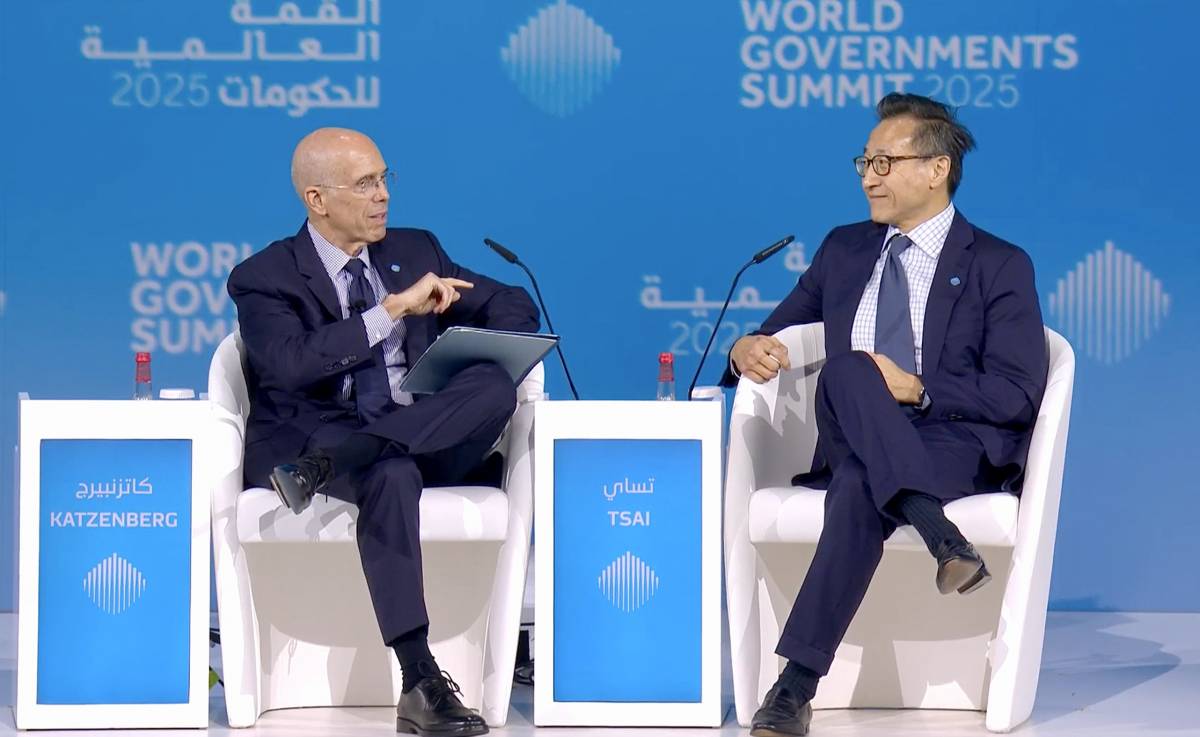
Joe Tsai, co-founder and Chairman of Alibaba Group, joined media executive and entrepreneur Jeffrey Katzenberg for a fireside chat at the World Government Summit (WGS) 2025 in Dubai on February 13. The discussion focused on the future of artificial intelligence and its evolving role in driving economic growth.
During the summit’s final day, Tsai shared his vision for the AI landscape, emphasizing the importance of specialized AI models tailored to practical applications. He noted that the era of competing for general AI dominance is giving way to developing models that deliver tangible economic impact and productivity.
“The AI race is not about who has the smartest kids,” Tsai remarked. “What truly matters is creating specialized AI models that are economically impactful and useful in real-world scenarios.”
Tsai highlighted that the future of AI innovation will be driven by companies that focus on reducing training and inference costs, aligning technological scaling with economic realities. He argued that this approach would democratize AI development, enabling broader participation and ultimately benefiting consumers with new and exciting applications.
Alibaba has positioned itself as a leader in AI and open-source initiatives. Its flagship platform, ModelScope—China’s largest open-source community—provides startups, small businesses, researchers, and developers with access to state-of-the-art AI models. By making its self-developed AI technologies freely accessible, Alibaba aims to foster economic growth and empower innovation across a diverse range of stakeholders.
The company was among the first major global tech firms to open source its large-scale AI models. In August 2023, Alibaba released its first open model, Qwen-7B, which has since inspired the development of over 90,000 derivative models globally. The subsequent release of 100 new Qwen2.5 models in 2024—ranging from 0.5 to 72 billion parameters—introduced enhanced capabilities in multilingual understanding, coding, and mathematics.
These initiatives underscore Alibaba’s commitment to cultivating a competitive and inclusive AI ecosystem. The company’s multi-modal models, such as Qwen2.5-VL and Qwen2.5-1M, have demonstrated advanced capabilities in processing complex inputs and visual reasoning. Their widespread adoption highlights Alibaba’s ability to lead in both technical innovation and practical application.
In a significant milestone, Alibaba became the first company worldwide to release a reasoning AI model, QwQ, as open source. This move reflects its dedication to transparency and collaboration within the industry. QwQ’s analytical capabilities and open availability reinforce Alibaba’s vision of a diverse and trustworthy AI ecosystem.
The World Government Summit, now in its 12th year, has become a leading platform for discussing global innovation and collaboration. This year’s event, held from February 11-13, brought together over 200 speakers, including world leaders, policymakers, and entrepreneurs.
Tsai’s remarks at the summit emphasized how economic considerations are reshaping AI development. By aligning innovation with affordability, he noted, more developers and businesses can participate in advancing the field. This shift, Tsai argued, is essential to unlocking AI’s full potential and delivering meaningful benefits to consumers worldwide.




